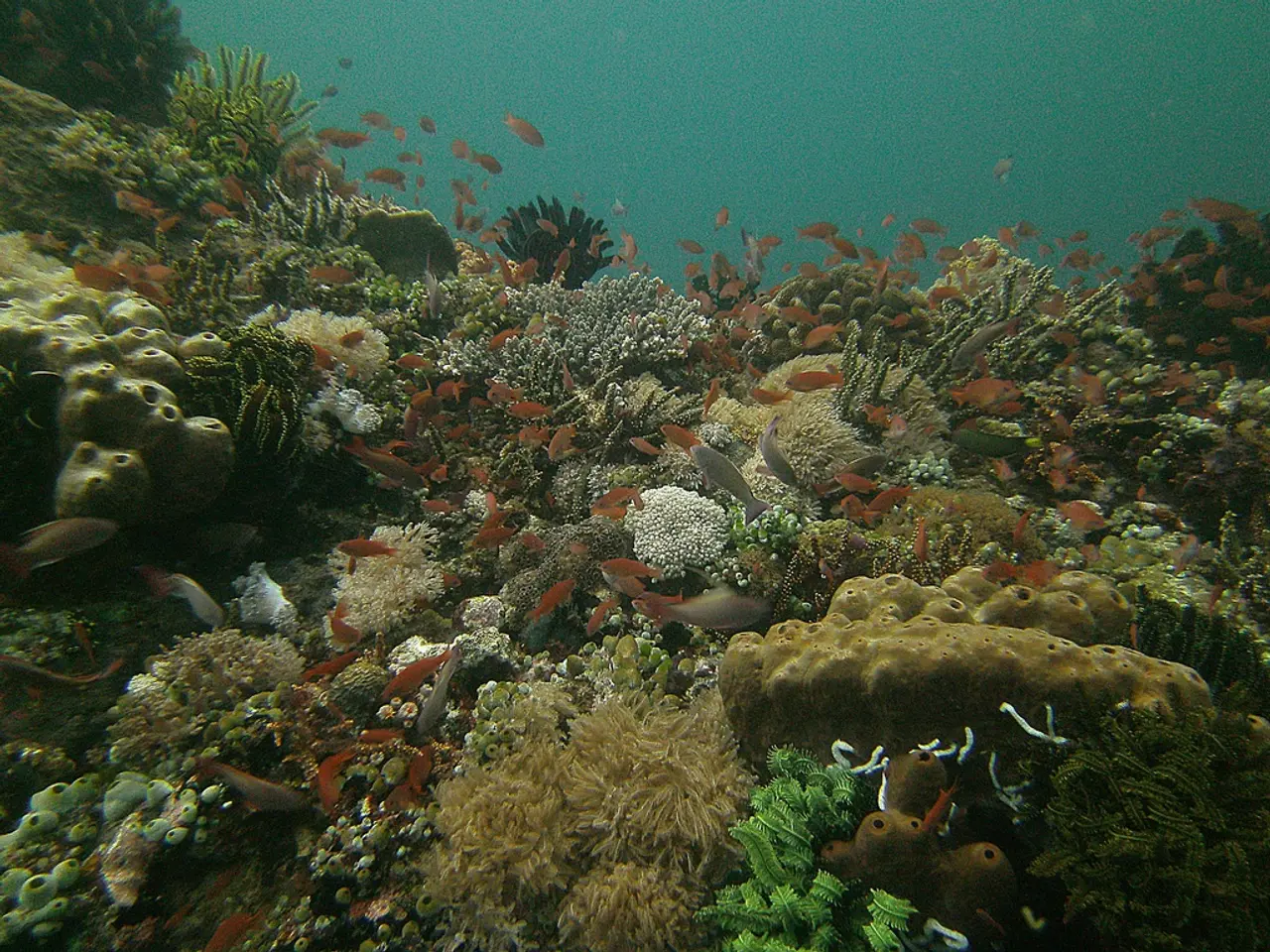Listen to the Reef: The Significance of Deep Listening for Ocean Conservation
Hear the Mesoamerican Reef: WOS Uses Sound to Monitor and Protect Marine Life
Since 2021, the Ocean World of Sound (WOS) has been making waves in marine conservation, organizing 31 events reaching over 1,700 people, including talks, workshops, and trainings. This community-driven initiative, based in Cancún, Mexico, is a global, transdisciplinary movement that empowers communities to protect the ocean using the transformational power of sound.
The story of WOS began with Heather Spence, a marine biology student, who was inspired during a holiday in Cancún to address the management of marine resources and anthropogenic impacts on coral reefs. Heather's master's degree research focused on finding a way to monitor vast marine areas with minimal resources, leading to the idea of using sound to "see" reef health.
WOS uses Passive Acoustic Monitoring (PAM), a cost-efficient, non-invasive, and effective method for tracking changes in biodiversity, assessing human impact, and understanding ecosystem health. This technique involves deploying underwater microphones (hydrophones) to continuously record sounds in the reef environment without disturbing marine life.
The rich acoustic environment of the Mesoamerican Reef, the second-largest barrier reef system in the world, is home to a diverse range of sounds, from crackling coral to fish grunts, snapping shrimp, and human-made noises such as boat engines. With practice and time, listening to underwater soundscapes can reveal diverse sounds and patterns, highlighting the complexity of marine ecosystems.
WOS encourages active listening to instill presence, attention, and empathy towards marine ecosystems. The organisation invites individuals to immerse themselves in the sounds of the reef by taking the WOS 30 Day Ocean Sound Challenge and staying updated on WOS events through their website.
Heather's initiative evolved into Ocean World of Sound (WOS), and over time, it has made significant strides. In collaboration with Dr. Jaime González Cano, the director of the local Marine Protected Area (CONANP) in Cancún, Heather launched "Ears in the Caribbean," the first-ever Passive Acoustic Monitoring (PAM) program in the Mesoamerican Reef.
WOS runs programs in Spanish and English, fostering a replicable model for other coastal communities, particularly in developing nations, to use sound for understanding and protecting their marine ecosystems. The organisation has created a citizen science group in Cancún with participants from Mexico and Paris, launched a pilot project assessing coral restoration efforts using PAM in the Maldives, and initiated a collaborative citizen science project with the University of Cádiz (INMAR) using sound data to train machine learning models.
The Mesoamerican Reef, despite supporting the livelihoods of millions, is under-researched and vulnerable. WOS's work complements traditional conservation strategies by offering continuous, real-time insights into the reef's ecological dynamics. The data collected by WOS is accessible to scientists and ocean enthusiasts, requiring no formal education beyond listening.
The Ocean World of Sound (WOS) is an endorsed action addressing three Ocean Decade Challenges: 4 - Develop a sustainable, resilient and equitable ocean economy, 7 - Sustainably expand the Global Ocean Observing System, and 9 - Skills, knowledge, technology and participation for all. The GenOcean campaign, an official Ocean Decade campaign focusing on youth and citizen science opportunities for ocean conservation, is also a part of this initiative.
In conclusion, the Ocean World of Sound (WOS) is more than just a concept; it is a vibrant, dynamic, and essential part of the Mesoamerican Reef. Through Passive Acoustic Monitoring, WOS is listening to the reef, learning from it, and working to protect it for future generations.
- By expanding their programs to include environmental science and sustainable living, Ocean World of Sound (WOS) aims to inspire individuals to make lifestyle changes that benefit the environment, particularly in home-and-garden practices.
- As climate-change impacts marine ecosystems,the work of organizations like WOS, with their focus on conservation and understanding ecosystem health through Passive Acoustic Monitoring, becomes even more critical in the field of science.
- In addition to their work in the Mesoamerican Reef, WOS has collaborated with other institutions to implement Passive Acoustic Monitoring programs in different parts of the world, contributing to global efforts in marine conservation and the expansion of the Global Ocean Observing System.




